Current Fellows
Paola Dardano
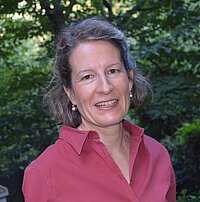
Paola Dardano's research focuses on historical-comparative linguistics, particularly the Hittite and Greek languages. Her interests include the morphosyntax and phraseology of Indo-European languages, the theory and methods of etymology, the Indo-European poetic language, and contact linguistics. She was a research fellow of the Alexander von Humboldt Foundation at the University of Cologne from 2008-2009. Since December 2019 she has been a full professor at the Università per Stranieri di Siena. In her MagEIA project she will examine the terminology and phraseology of Hittite magical texts.
Sevgül Çilingir Cesur
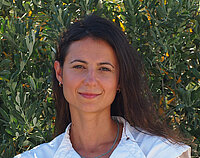
Sevgül Çilingir Cesur's area of research is Hittite magical rituals and the comparative analysis of these texts in terms of paraphernalia, concepts of time and space. In her dissertation, she studied a selected group of ritual material from CTH 390-470 with a holistic approach. She was a postdoctoral fellow at the Julius-Maximilians-Universität of Würzburg, where she worked on concepts of time in Hittite ritual texts. Dr. Cesur is currently working on the publication of the unpublished Bo fragments from the Anatolian Civilizations Museum in Ankara. Since 2017, she has been a full-time lecturer at Ege University. In her MagEIA project, she will work on subsidiary actors and observe their roles in order to portray the diversity of individuals in Hittite magical practices.
Korshi Dosoo
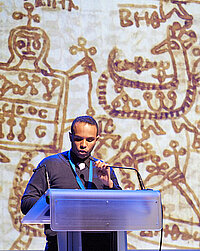
Korshi Dosoo received his doctorate in ancient history at Macquarie University in Sydney, Australia in 2015. He has since been ATER (lecturer) at the University of Strasbourg, post-doctoral researcher on the Labex RESMED project “Les mots de la paix”, and from 2018-2023 was the leader of the junior research group “The Coptic Magical Papyri: Vernacular Religion in Late Antique and Early Islamic Egypt” at the Julius Maximilian University of Würzburg. His research focuses on magic and lived religion in Egypt from the Ptolemaic to Mamluk periods as revealed by papyrological and epigraphic sources. His work on the MagEIA project will explore the question of the development and representation of magic in Christian Egypt.
Charlotte Rose
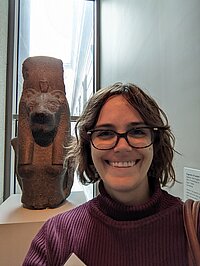
Her project with MagEIA, "Tools of Medicine: Materials in Medical-Magical Spells", addresses the correspondence between medical-magical texts and material culture by examining the relationship between Hieratic medical-magical texts of mainly the Middle and New Kingdoms and the objects pertaining to them, taking a diachronic lens. This research branches off of her dissertation, Changes and Continuity: Ancient Egyptian Birth Practices from the Middle Kingdom through the New Kingdom, which examined the textual evidence and material culture of ancient Egyptian birth and fertility traditions through a diachronic lens. By examining the correspondence between medical-magical texts and material culture, this project aims to render a more complete understanding of daily-life magic.
Jonathan Beltz
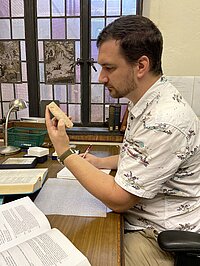
Jon Beltz recently completed his PhD in Assyriology at Yale University. His research focuses on the religion and literature of ancient Mesopotamia, and in particular the nature of deities and demons and exorcistic magical texts. His dissertation, Namtar: Deity, Demon, Agent of Fate, examines the roles and nature of a Mesopotamian chthonic figure, Namtar, a sort of grim reaper in Mesopotamian mythology. He also has a forthcoming article publishing several Sumerian amuletic incantations and has worked on the function of inscribed amulets in ancient Mesopotamia. At the MagEIA Centre for Advanced Studies he will begin his next project, an updated edition of a group of Sumerian and bilingual Sumero-Akkadian incantations known as zi–pa3 incantations.






